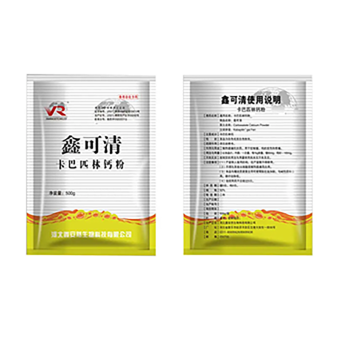- Afrikaans
- Albanian
- Amharic
- Arabic
- Armenian
- Azerbaijani
- Basque
- Belarusian
- Bengali
- Bosnian
- Bulgarian
- Catalan
- Cebuano
- Corsican
- Croatian
- Czech
- Danish
- Dutch
- English
- Esperanto
- Estonian
- Finnish
- French
- Frisian
- Galician
- Georgian
- German
- Greek
- Gujarati
- Haitian Creole
- hausa
- hawaiian
- Hebrew
- Hindi
- Miao
- Hungarian
- Icelandic
- igbo
- Indonesian
- irish
- Italian
- Japanese
- Javanese
- Kannada
- kazakh
- Khmer
- Rwandese
- Korean
- Kurdish
- Kyrgyz
- Lao
- Latin
- Latvian
- Lithuanian
- Luxembourgish
- Macedonian
- Malgashi
- Malay
- Malayalam
- Maltese
- Maori
- Marathi
- Mongolian
- Myanmar
- Nepali
- Norwegian
- Norwegian
- Occitan
- Pashto
- Persian
- Polish
- Portuguese
- Punjabi
- Romanian
- Russian
- Samoan
- Scottish Gaelic
- Serbian
- Sesotho
- Shona
- Sindhi
- Sinhala
- Slovak
- Slovenian
- Somali
- Spanish
- Sundanese
- Swahili
- Swedish
- Tagalog
- Tajik
- Tamil
- Tatar
- Telugu
- Thai
- Turkish
- Turkmen
- Ukrainian
- Urdu
- Uighur
- Uzbek
- Vietnamese
- Welsh
- Bantu
- Yiddish
- Yoruba
- Zulu
Novemba . 10, 2024 07:37 Back to list
Effective Medications for Treating Giardia Infections in Humans and Animals
Medications Used to Treat Giardiasis
Giardiasis is a prevalent intestinal infection caused by the parasitic protozoan Giardia lamblia. This parasite resides in the intestines of humans and animals, often leading to gastrointestinal symptoms such as diarrhea, abdominal pain, bloating, nausea, and fatigue. Infection typically occurs through the ingestion of contaminated water, food, or through fecal-oral transmission. Given that giardiasis can cause significant discomfort and complications if left untreated, understanding the available treatment options, particularly medications, is crucial.
The primary line of defense against giardiasis is a selection of antiparasitic drugs that have been proven effective in eliminating the Giardia parasite from the body. The most commonly prescribed medications include Metronidazole, Tinidazole, and Nitazoxanide. Each of these drugs functions through different mechanisms, and their effectiveness can vary based on factors such as the severity of the infection and the individual’s overall health.
Metronidazole, a nitroimidazole antibiotic, is one of the most widely prescribed treatments for giardiasis. It works by disrupting the DNA synthesis of the Giardia parasites, ultimately leading to their death. The typical course of treatment lasts for five to seven days, with patients usually taking the medication two to three times a day. While Metronidazole is effective for the majority of patients, side effects can include nausea, a metallic taste, and, in some cases, neurological effects, particularly in prolonged usage. Care should be taken for patients who are pregnant or have liver issues, as alternative treatments may be more appropriate in these scenarios.
2. Tinidazole
Tinidazole, another nitroimidazole derivative, has also proven effective against giardiasis and is frequently used as an alternative to Metronidazole. It is often administered as a single dose for adults, making it a convenient option for patients who may have difficulty adhering to a longer treatment regimen. Like Metronidazole, Tinidazole disrupts the DNA of the Giardia parasite, leading to its destruction. It is generally well-tolerated, but some side effects may include headache, dizziness, and gastrointestinal disturbances. It is notably contraindicated in individuals who are pregnant, particularly during the first trimester, or those with a history of hypersensitivity to the drug.
what medication is used to treat giardia

3. Nitazoxanide
Nitazoxanide is another promising medication for the treatment of giardiasis. It is a broad-spectrum antiparasitic drug that works by inhibiting the energy metabolism in protozoa, disrupting vital pathways necessary for their survival. Nitazoxanide is particularly notable because it can be administered to both adults and children, making it a universal option for this infection. The standard dosage is usually for three days, often taken twice daily. Patients often tolerate it well, with less severe side effects compared to the other options, though it can cause mild gastrointestinal discomfort in some cases.
Choosing the Right Medication
While these medications are effective, the choice of treatment should always be guided by a healthcare professional. Factors such as the patient’s health history, potential drug interactions, and the presence of any other underlying conditions will influence the selection of medication. Furthermore, laboratory confirmation of giardiasis through stool tests is essential before commencing treatment, as similar symptoms could arise from other gastrointestinal infections.
In addition to pharmacologic treatments, patients are encouraged to stay hydrated and may need to implement dietary changes during recovery. Proper hygiene, such as thorough handwashing and avoiding contaminated water, remains crucial in preventing reinfection.
In conclusion, giardiasis is a manageable condition with several effective medications available for treatment. Metronidazole, Tinidazole, and Nitazoxanide are the primary drugs used to combat this infection. While each comes with its own set of potential side effects, consulting with a healthcare provider is vital to tailoring the treatment to individual circumstances, ensuring the best outcome for those afflicted by this parasitic infection. Proper treatment leads to the resolution of symptoms and the restoration of health, allowing individuals to return to their daily lives free from the burden of giardiasis.
-
Guide to Oxytetracycline Injection
NewsMar.27,2025
-
Guide to Colistin Sulphate
NewsMar.27,2025
-
Gentamicin Sulfate: Uses, Price, And Key Information
NewsMar.27,2025
-
Enrofloxacin Injection: Uses, Price, And Supplier Information
NewsMar.27,2025
-
Dexamethasone Sodium Phosphate Injection: Uses, Price, And Key Information
NewsMar.27,2025
-
Albendazole Tablet: Uses, Dosage, Cost, And Key Information
NewsMar.27,2025













